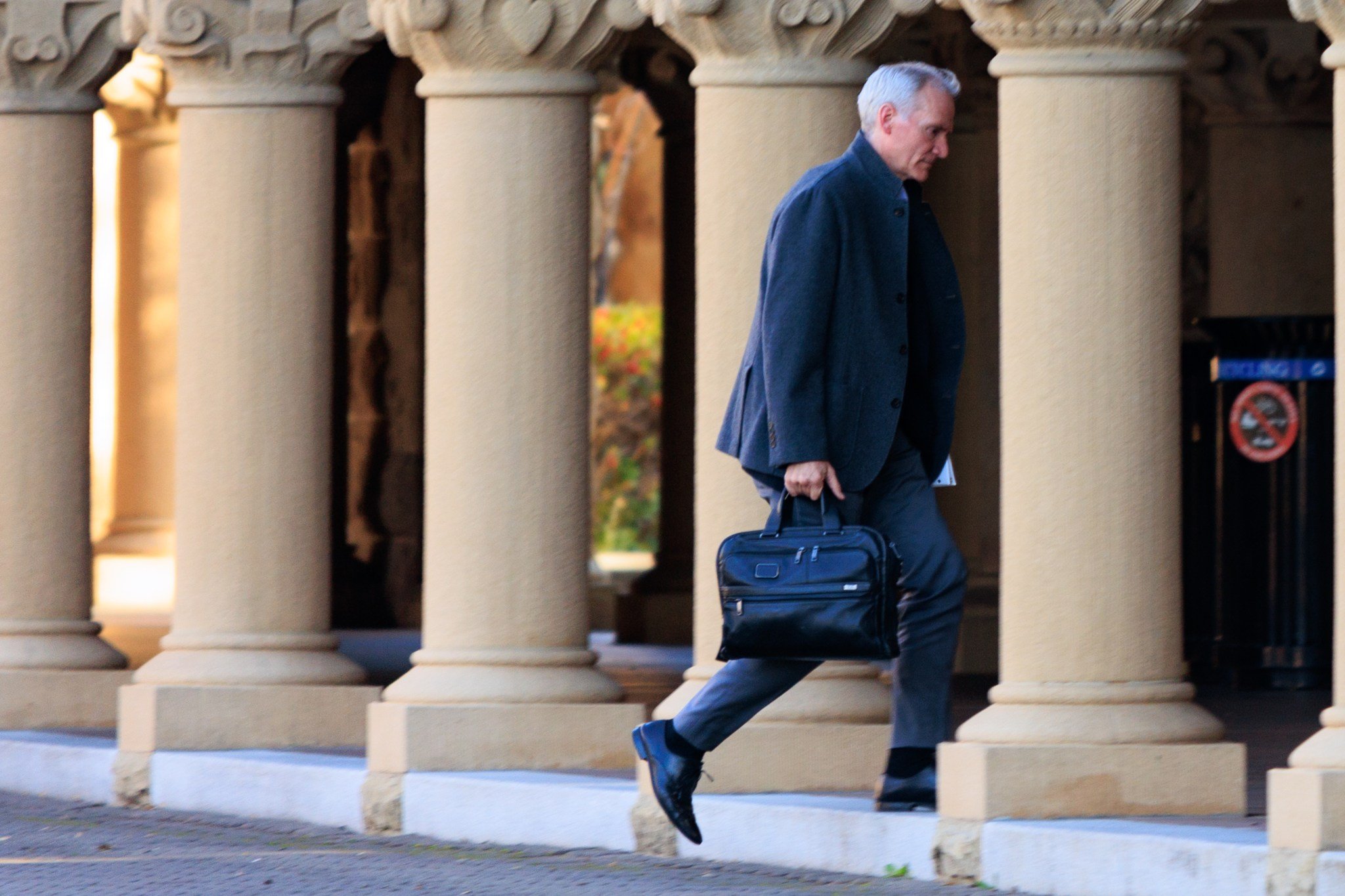Stanford President Marc Tessier-Lavigne sent faculty and staff an email Friday stating that a Daily article containing allegations from four former colleagues that his Alzheimer’s research contained falsified data was “replete with falsehoods.”
Though the president has previously defended his research in emails to the faculty, Tessier-Lavigne’s latest email and accompanying letter posted to his lab’s website marks an escalation in the president’s response to allegations of research misconduct and the University’s investigation for its focus on The Daily’s reporting.
“I reject in the strongest terms the accusation that I behaved improperly,” he wrote. “I am confident that a full airing of the facts will vindicate my position.”
The Daily’s reporting and Tessier-Lavigne’s subsequent defense come as the president is increasingly under scrutiny. After The Daily first broke the news in November that several papers co-authored by Tessier-Lavigne allegedly contained image manipulation, the Board of Trustees opened an investigation into the matter. Independent scientists have since raised concerns about additional papers authored by the president, and Science and Cell have issued Editorial Expressions of Concern for three papers for which Tessier-Lavigne is the senior author.
Daily Editor in Chief Sam Catania ’24 wrote in a statement that The Daily stands behind its reporting: “The Daily’s in-depth, fair and thoroughly fact-checked reporting speaks for itself,” Catania wrote. “We fully stand behind it.”
The Daily reported Friday that four high-ranking employees at Genentech, where the president was then a top executive, alleged that the company had conducted an internal review and found falsification of data in a scientific paper on which Tessier-Lavigne was the senior author. The employees, three of whom spoke on the condition of anonymity, further alleged that Tessier-Lavigne kept the finding from becoming public, according to The Daily’s report.
The paper made waves at the time of its 2009 publication in Nature for its discovery of the potential cause for brain degeneration in Alzheimer’s patients, The Daily noted in its reporting. Genentech told shareholders the research could lead to treatments that could “help the millions of people who currently suffer from this devastating disease.”
Tessier-Lavigne took direct aim at The Daily’s reporting in his Friday letter, which was titled “False allegations in the Stanford Daily.”
“The Daily claims that the 2009 paper was the subject of an internal review at Genentech that showed falsification of data and that I worked to suppress its findings,” Tessier-Lavigne wrote. “This is a breathtakingly outrageous set of claims that are completely and utterly false.”
Tessier-Lavigne added that he had not been aware of any allegations of fraud until he had been contacted by The Daily and that he “remain[s] unaware of any evidence whatsoever of fabrication.”
Tessier-Lavigne’s response directly contradicted the accounts of the four Genentech employees interviewed by The Daily. The four employees had direct knowledge of the situation and provided their accounts independently, according to the report.
One senior scientist told The Daily that Tessier-Lavigne had flown to California to “clean it up” when the review was initiated. Another scientist, who was on the committee that reviewed the paper, said Genentech leadership had urged Tessier-Lavigne to retract the paper publicly.
Tessier-Lavigne also alleged that The Daily had criticized the 2009 paper on the grounds that “we didn’t get all the aspects of the model right in our very first publication.” He wrote that he had authored later studies that revisited the original model, and “subsequent papers have fully validated and extended our revised conclusions.”
“To anyone who knows how science works, this is a preposterous criticism,” he wrote.
According to The Daily’s report, a key finding in the paper — that the amino-terminal fragment of the amyloid precursor protein binds to death receptor six, causing neurodegeneration — was not held up by further research. The Daily reported that later studies published by Tessier-Lavigne’s lab found that the fragment of the protein used in the original research could not have bound to the receptor and caused the results described in the paper, according to an independent scientist who reviewed the published literature.
The same expert observed irregularities in the paper, such as a low number of samples, but noted that the issues did not inherently indicate misconduct, The Daily reported.
Tessier-Lavigne also cited a statement from Genentech quoted by The Daily in his letter. “The Daily article itself includes a statement from Genentech that ‘we reviewed the records from that meeting and saw no allegations of fraud or wrongdoing,’” he wrote.
The Daily report also quoted the company’s acknowledgement that “given that these events happened many years ago … our current records may not be complete.”
